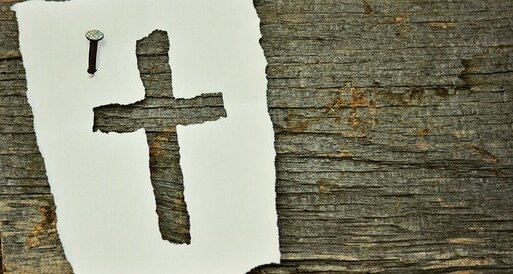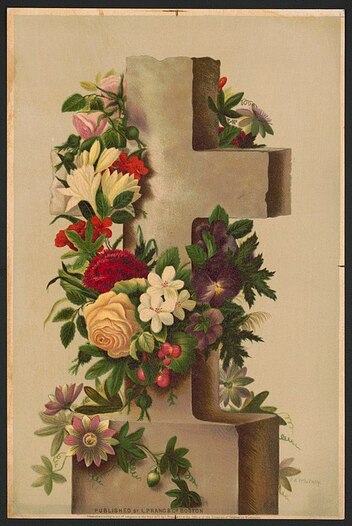 Image by congerdesign from Pixabay Image by congerdesign from Pixabay The music of the Triduum has always been among the most poignant, dramatic, and meaningful to me over my decades in music ministry. Beginning with the solemnity of Maundy Thursday, merging into the stark character of Good Friday and concluding with the glorious Alleluias of Easter Sunday, the Triduum is meant to be experienced as one uninterrupted space of worship—whether seated in the pews (watching on your pc screen!) or going about one's day. The music tells the story of Christ's Passion and Resurrection just as much as the verbal narratives we will hear this week. This Maundy Thursday, Olivier Messiaen's ode to the Eucharist, "Le Banquet Céleste" (The Celestial Banquet), opens worship on a most mystical note—a work meant to embody mystery and eternity. Cellist Heidi Mausbach offers musical responses during the Tenebrae portion of the service by J.S. Bach and a collaboration on the Gregorian Chant-based setting of "Ubi Caritas" by Jeanne Demessieux. The sublime "Choral Dorien" by Jehan Alain brings the service to a meditative close. The noon Good Friday Musical Meditation and Prayer event is a brief presentation for you to reflect upon this holy day. Settings on hymns of the Passion such as "Ah, Holy Jesus", "My Song Is Love Unknown" and "O Sacred Head, Now Wounded" will be offered and concluding with Arvo Pärt's tranquil "Pari Intervallo." This Easter Sunday morning heralds the return of the Plymouth Brass, our resident brass quintet, in works by Michael Praetorius and Sigfrid Karg-Elert. The Plymouth Ringers and Chancel Choir will also be present as we celebrate the Risen Christ in two settings of Paschal hymns. The gloriously transcendent "Acclamations" from Jean Langlais' "Suite Médiévale" closes worship with an imaginative set of variations on the two-note Gregorian Chant motif "Christus Vincit": Christ victorious. On Easter Sunday evening at 6:00, we center ourselves around the Road to Emmaus story as bread is broken and shared, revealing the Risen Christ. Guitarist Alan Skowron joins us for songs of transformation and resurrection by Gungor, U2, and Easter carols of yore.
0 Comments
 By GunnerVV - Easter Sunrise 2011, CC BY 2.0, https://commons.wikimedia.org/w/index.php?curid=21211093 By GunnerVV - Easter Sunrise 2011, CC BY 2.0, https://commons.wikimedia.org/w/index.php?curid=21211093 Expressions of the Triduum from the German Baroque era and ethereal sonorities from 20th century French composers greet us this Maundy Thursday. The impressionistic work "Le Banquet Céleste" (The Heavenly Feast) by Olivier Messiaen begins the service as a musical paraphrase of the eucharistic text John 6.56: "Whoever eats my flesh and drinks my blood remains in me, and I in them." Cellist Heidi Mausbach joins us for the restless and surreal second movement of Sonata in A Minor for cello and organ by Marcel Dupré. With soprano Blair Carpenter, the sublime "Pie Jesu" from Maurice Duruflé's Requiemwill be offered. Additional works by J.S. Bach, Ronald Perera, Jean Langlais, and Jehan Alain bring this holy night to a tranquil and reflective space of repose. On Good Friday, a meditation though music, prayer, scripture, and poetry will be offered at noon. Rev. Jane Anne Ferguson will weave in stories of this holy day with musical expressions from the organ contributing their own tales. Repertoire spanning the centuries including J.S. Bach, Johannes Brahms, Helmut Walcha, and Ludwig Lenel provide you with an inviting template to contemplate the life and death of Christ. In closing, a setting by Jeanne Demessieux on the Good Friday text "In Manus Tuas" (Into your hands, O Father, I commend my spirit) concludes this prayerful time. The Plymouth Brass returns this Easter Sunday to lead our hymn singing and share joyful works of the Paschal season by G.F. Handel and Johann Crüger. The ecstatic joy of Jean Langlais' "Acclamations" from Suite Médiévale closes the Easter celebration in triumph: Christus vincit. The Triduum begins with a two-part service this Maundy Thursday: the commemoration of the Lord's Supper leading into the Office of the Tenebrae (Latin for darkness).
"Le Banquet celéste" (the celestial banquet) is an impressionistic work by Olivier Messiaen based on the words of John 6.56: "He that eateth my flesh and drinketh my blood dwelleth in me and I in him." Composed in 1928, it was Messiaen's first published piece and was meant to connote the sense of eternity present in the Eucharist, reflecting his devout Catholic faith. "Choral dorien" by Jehan Alain closes the service as a musical meditation: serene, mysterious, and hopeful. The Chancel Choir will offer a setting of "Ubi Caritas" (where charity and love are, God is there), the traditional antiphon for Maundy Thursday used at the washing of the feet rite. A beautiful setting of "O vos omnes" by Spanish Renaissance composer and priest Tomás Luis de Victoria will be sung by the Chamber Choir near service's end. Based on Lamentations 1.12, this text is commonly used for Holy Week rites and specifically as part of the Holy Saturday Tenebrae Responsories. On Easter Sunday we will be joined by the Plymouth Brass in joyful hymns, Handel's infamous "Hallelujah Chorus" and an exceptional Chancel Choir anthem by Joel Martinson, "Three Days Had Passed." The Chamber Choir will lead us into the Call to Worship with the introit "Whom Do You Seek" by Roy Stewart. The Plymouth Ringers will also be on hand as we celebrate the Resurrection with Easter hymns during communion. The organ works will be decidedly French with the monumental "Chorale No. 3 in A Minor" by César Franck opening the service. It is a fifteen minute work that could be interpreted as two themes, Life and Death, dancing around each in battle with the chorale theme (Life) winning in the end. This was Franck's last organ work, completed in the year of his death in 1890. The service concludes with the majestic and wonderfully dissonant "Acclamations" from Jean Langlais' "Suite Médiévale". It is based on a two-note chant melody with the text, Christus Vincit (Christ Victorious). At the 6pm service, we'll have a Dixieland Easter! |
Details
|


 RSS Feed
RSS Feed